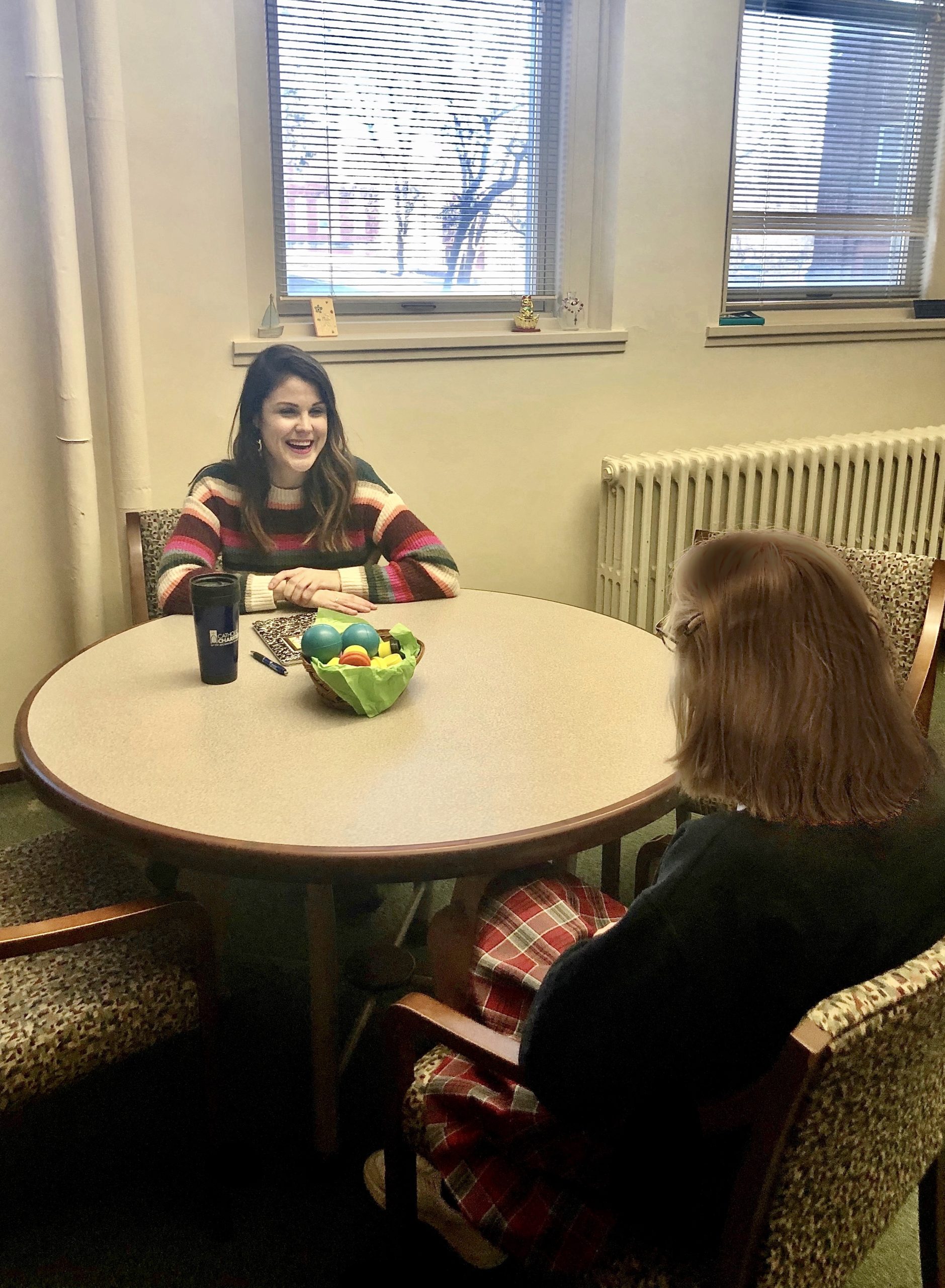
Catholic Charities therapist Amber Determan meets with a student Feb. 14. COURTESY PHOTO
News
Catholic Charities treats mental health issues at school
March 6, 2020
About one in every five children in the United States suffers from some form of mental, emotional or behavioral disorder, according to statistics from the U.S. Centers for Disease Control and Prevention.
And suicide is now the second leading cause of death in young people ages 15-24 and the third leading cause for ages 10-14.
Principal Barbara Marchese of St. Vincent de Paul School in Omaha is all too aware of the problems. For instance, she recalls talking with one elementary school student who was considering suicide – and even knew how to do it.
But thanks to a fledgling program by Catholic Charities of Omaha, she said, the student received timely help.
That program – now in its third year – provides mental health services for students at 14 Catholic elementary and high schools in the archdiocese, along with college students at the St. John Paul II Newman Center in Omaha.
“There’s so much more these kids have to deal with than I ever had to deal with … it breaks my heart,” Marchese said. “Our (guidance) counselors are not equipped to handle that.”
Catholic Charities provides on-site, licensed mental health therapists, generally one day per week, to meet with students at school, along with family members when necessary, and to provide training for students, staff and parents on topics such as depression, suicide, substance abuse, eating disorders and other mental and behavioral health issues.
They also collaborate with teachers and school administrators, provide mental health and risk assessments, and are available for crisis intervention if needed.
Catholic Charities piloted the program during the 2017-2018 school year with seven Omaha Catholic schools, and has since served 18 schools in the archdiocese. Following referral by school personnel, services are free to students and their families, with costs paid for by the schools.
After many of the organization’s behavioral health programs closed in 2016, Catholic Charities held focus groups with pastors and school administrators to determine how it could continue to serve the community, said Joan Huss, senior director of program services and one of four therapists involved in the program.
“The number-one issue was behavioral health,” she said. “We heard it loudly and clearly from principals and the priests, that in the (parish) schools … is where the services were needed.”
Pressures at school, issues at home, relationship problems with peers, and negative impacts from social media are among the challenges affecting the mental and emotional well being of students, and in turn, performance at school, Marchese said.
For students experiencing mental health challenges, getting help quickly is key, said Alexandria Ashley, a therapist serving four Catholic elementary schools in Omaha.
“We do come across these students at times that are really important in their lives, and it does make a difference, and sometimes it does come down to safety,” she said. “When a student presents with a need … we can get them services pretty quickly.”
Eliminating barriers to timely care, such as waiting time to see a counselor at a mental health clinic, difficulty getting to an appointment and insurance red tape, is one of the biggest benefits of on-site counseling, Ashley said.
And providing service in an environment where students are already comfortable is another plus, said therapist Jenna Whitaker, who serves two elementary schools, three high schools and the Newman Center.
Whitaker said she sees a variety of issues across the three age groups. In high school and college students these include “stage of life” transitioning issues and academics, while grade schoolers experience more interpersonal and behavioral issues.
A common thread in all three groups is anxiety and depression, she said. “I think that’s what we see across all age demographics in schools.”
“It is very difficult for kids to focus on school when they are dealing with a difficult time in their lives,” Marchese said.
“None of us leave our problems at the door of school, so having an outside resource that comes into our building, where they can feel supported and heard in a non-threatening environment, is a huge benefit to our students and families.”